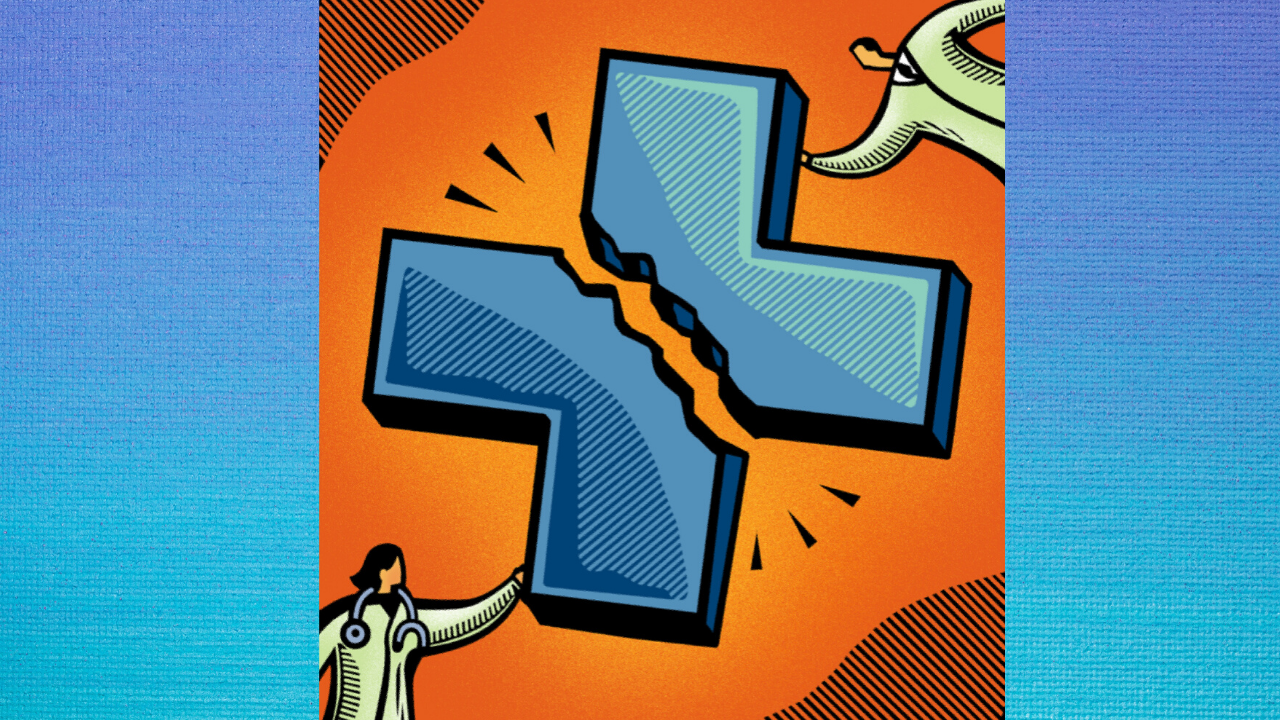Three Reasons You Need To Be Your Own Advocate

‘If you have any issues, don’t bother going to the ER. Just go home and die.’
Teri had lost her cardiologist and was meeting a new one when he said this to her.
Can you imagine?
Sadly, I’m guessing you don’t have to imagine it - you’ve probably experienced something like this too.
As a rare disease patient, dealing with the medical system can be both hard and harmful.
Let’s talk about 3 reasons why it is so very important to learn how to navigate the medical system and to step into being your own advocate.
1. Difficulty of finding doctors
Rare diseases are well...rare. Many doctors don’t know about them or have limited and/or incorrect information about them.
Teri’s cardiologist knew enough about her rare diseases to recognize their complexity but not enough to appropriately handle her care which was arguably worse than not knowing.
Too often, doctors feel that they can ignore the ‘do no harm’ promise, adding to the emotional and mental suffering experienced by rare dis...
3 Ways to Report a Doctor

After dealing with chronic pain due to spine issues, Dr. L, my pain medicine doctor, wanted me to see Dr. S, a surgeon, to see if I needed surgery. Dr. L had been the bright light in my life after I took a fall from my horse and broke 4 vertebrae. He listened, validated my symptoms and concerns, and wanted to know what I felt I needed.
Dr. S was your typical surgeon with little to no interpersonal skills, rushing in, and jumping into his side of the conversation before I was able to get a word in. He looked at my imaging for two minutes, told me there was nothing he could do for me. So far, so good....
He then went into a tirade about how pain meds were evil, that I needed to stop them immediately, and just get on with my life. Go ride your horse and stop worrying about your pain.
With tears streaming down my face, I left the office feeling not only hopeless but ashamed that I needed pain meds.
I wanted to report him and tell everybody how terrible he was.
But, other than be...
Can the Wrong Doctor Be Dangerous?

As in so many areas of life, it is hard or often impossible to know 'what you don't know' or to recognize what hidden issues or dangers are out there.
When you are dealing with doctors and medical issues, what you don't know and the hidden dangers of staying with the wrong doctor can be disastrous and even life-threatening.
The effects of staying with 'a wrong doctor' can vary from mild frustration to long term effects on the quality of your healthcare.
Changing doctors isn't easy or for the faint of heart
I get it. Finding, meeting and working with a new doctor is a lot of work and can be scary too.
Let's take a closer look at some of the hidden dangers of staying with the wrong doctor.
Danger #1: Emotional or psychological effects
When a doctor is dismissive or assumes the issues are from anxiety or depression, it can have a huge impact on you and your loved one's emotional and mental health.
How many of us have been told that it is anxiety? Or if you make them go to schoo...
What You Should Know About the Chief Complaint

If you have been seen at a teaching hospital you have likely been seen by a medical student or resident prior to seeing the (attending) doctor. They meet with you first and their job is to take your history and present it to the doctor. Sometimes it goes well but too often it ends up a bit like a game of telephone where your original message is distorted and garbled when it gets to the doctor.
Let's look at one aspect of what is going on here and why things sometimes go awry.
Chief Complaint
Have you ever thought about the process or framework a doctor uses to get information from you in an interview? Did you know that they are all taught this framework, the medical interview, in medical school and they continue to use it throughout their career?
...
6 Ways a Medical Appointment Is Like a Job Interview

You’ve probably heard the advice that you should write down questions for your doctor before an appointment but that is usually not enough when you are dealing with a rare or complex disease. Did you know that doctors are taught a ‘medical interview’ that they use as the framework of your appointment? By approaching your appointment like you would a job interview, you can learn how to better communicate and collaborate with your doctor, resulting in a stronger relationship and better care for you.
Let’s look at the way an appointment or ‘medical interview’ is similar to a job interview.
-
You need to be prepared and ready to answer the questions that are being asked.
You have probably been asked the typical interview questions like ‘What are your strengths?’ or ‘Where do you see yourself in 5 years?’ The first time you heard them, you may have stumbled and stammered a semi-intelligible answer. But, you quickly figured out the game and knew to expect those questions so you p ...
Our Broken Medical System

Our medical system has changed a lot over the last 20 years, especially for the doctors working in the system.
Intuitively and through our own experiences, we can see that doctors are struggling with the changes including high levels of burnout, frustration and even an increased rate of suicide.
So, what is it that is causing the doctors’ struggles?
Based on a 2018 survey, doctors reported their top two least satisfying factors about medical practice as listed below.
EHR design/interoperability 39.2%
Regulatory/insurance requirements 37.6%
Loss of clinical autonomy 37.0%
Professional liability/malpractice 30.2%
Amount of time with patients 12.4%
Income/compensation 12.1%
In the Medscape National Physician Burnout, Depression & Suicide Report 2019 doctors reported what contributed to their burnout.

These surveys are general and not specific to the issues that are faced b...
3 Ways to Help Our Rare Disease Doctors

If you have been in the rare disease world for any length of time, you have likely heard of a rare disease expert who has closed their practice, retired from patient care, been pushed out of a larger organization, or opened a private pay clinic.
Experts like Dr. Korson dealing with mitochondrial disease, Dr. Afrin working with mast cell diseases, Dr. Boris and Dr. Schofield focusing on autonomic issues like POTS, and many others, have left leaving even more patients without appropriate or even adequate care.
The sad part is that it is rarely the doctor's choice to step back from rare disease patient care. Often, the rare disease doctor’s practice is seen as too risky, too controversial, not productive enough because of long appointments and high resource needs, or not financially lucrative.
Why does this keep happening and what can we do to help our rare disease experts help us get the care we need?
Let’s start by looking at the reasons our rare disease doctors are having such a ...


